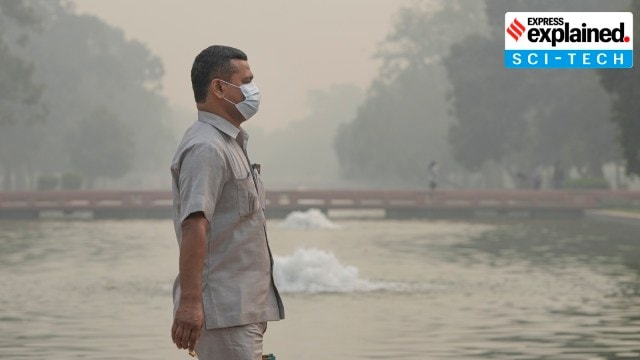Anonna Dutt is a Principal Correspondent who writes primarily on health at the Indian Express. She reports on myriad topics ranging from the growing burden of non-communicable diseases such as diabetes and hypertension to the problems with pervasive infectious conditions. She reported on the government’s management of the Covid-19 pandemic and closely followed the vaccination programme. Her stories have resulted in the city government investing in high-end tests for the poor and acknowledging errors in their official reports. Dutt also takes a keen interest in the country’s space programme and has written on key missions like Chandrayaan 2 and 3, Aditya L1, and Gaganyaan. She was among the first batch of eleven media fellows with RBM Partnership to End Malaria. She was also selected to participate in the short-term programme on early childhood reporting at Columbia University’s Dart Centre. Dutt has a Bachelor’s Degree from the Symbiosis Institute of Media and Communication, Pune and a PG Diploma from the Asian College of Journalism, Chennai. She started her reporting career with the Hindustan Times. When not at work, she tries to appease the Duolingo owl with her French skills and sometimes takes to the dance floor. ... Read More
Delhi chokes on pollution: Will masks protect you?
Around 1.67 million deaths in India in 2019 could be attributed to air pollution, accounting for 17.8% of the total deaths. Can masks help reduce these deaths?
 A man wears a mask to protect himself from growing level of air pollution, in New Delhi, Thursday, Nov. 2, 2023. (PTI Photo/Atul Yadav)
A man wears a mask to protect himself from growing level of air pollution, in New Delhi, Thursday, Nov. 2, 2023. (PTI Photo/Atul Yadav) Air pollution has become a yearly woe for several cities in India, with masks becoming a winter staple. While the habit of donning masks has increased over the last three years owing to the pandemic, most of the cloth and surgical masks used then would be ineffective against the small pollution particles capable of entering deep into the lungs and the bloodstream.
Around 1.67 million deaths in India in 2019 could be attributed to air pollution, accounting for 17.8% of the total deaths according to the Global Burden of Disease report published in the Lancet. The report says that deaths due to household air pollution have reduced by 64.2% between 1990 and 2019 but deaths due to ambient air pollution have increased by 115.3%.
Can masks protect you from pollution?
Doctors say although “impractical”, the N-95 masks when worn properly may offer some protection from the small particulate matter. “The pollution levels are so high at present that people would need to wear an N-95 mask 24*7. This is impossible and impractical. But, yes, when worn properly with no leaks from the sides, it does offer some protection,” says Dr Arvind Kumar, chest surgeon from Sir Ganga Ram Hospital.
It aligns with the World Health Organisation advisory that says: “Face masks are generally not regarded as a suitable measure for the protection of health but may be indicated in certain special circumstances, for example, during prolonged commuting and outdoor activities in situations of hazardous air quality.”
A 2021 study from the USA shows that an N-95 mask may reduce exposure to particulate matter by a factor of 14. Another study from Vietnam where exposure of a manikin wearing different types of masks was measured shows that N95 reduced exposure to ultra-fine particles by 60%.
These results, however, depend on proper fit and minimum leakage of air from the sides. However, a study from China that tested commercially available masks with volunteers showed that there was 3% to 68% inward leakage of air during sedentary tests.
Do masks protect against gaseous pollutants?
While N-95 masks can protect against particulate matter, they cannot prevent exposure to gaseous pollutants such as sulphur dioxide, nitrogen dioxide, and ozone. Dr Kumar said: “Gases will pass through even an N95 mask. There are some activated carbon filters that have been developed, but they are impossible to keep on.”
A recent study by AIIMS, Delhi shows that exposure to nitrogen dioxide (NO2), even for a short duration, between zero and seven days, leads to an increase in the number of emergency room visits by 53%. This is alarming because an increase in the levels of the more familiar pollutant PM 2.5 pushed up the patient load by 19.5% in comparison.
Which masks should you choose?
Surgical and cloth masks should be avoided as they do not offer protection against pollutants.
N-95 or N-99 masks that offer a good fit around your face should be selected.
The masks must have a clip over the nose to offer a proper seal.
The masks should have adjustable straps, with one that goes over your head providing the best seal.
How can you ensure that your mask is effective?
When wearing a mask, ensure that your nose and mouth are properly covered and pinch the metal pin on the nose to create a seal. Make sure to change the mask frequently and avoid ones that have cracked.
“You can repeatedly use the N-95 masks as long as they have not cracked. However, if you keep removing it frequently you will notice that it cracks quickly. A cracked or creased mask does not offer proper seal,” says Dr Kumar.
It should also not be wet, he adds.



- 01
- 02
- 03




































